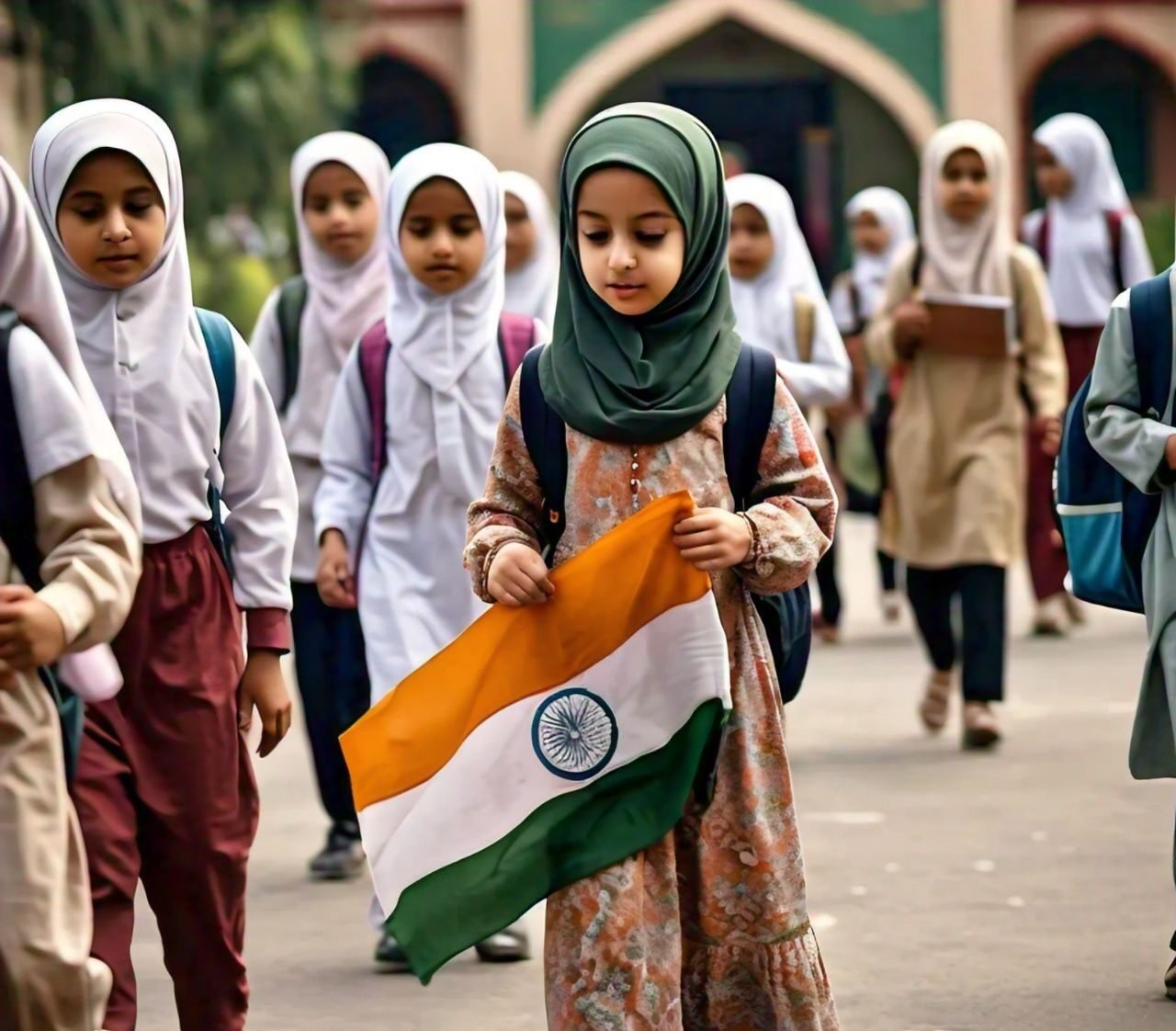– Abul Faiz Azmi
Hafsa had been very happy since the morning. She was going to attend the August 15 program at her school with her friends. The school did not hold many programs, but when they did, they were organized with great care. The August 15 program was also held with much enthusiasm. Famous businessmen and politicians of the city were attending as special guests. The program included speeches, dialogues, dramas, action songs, and more, which made Hafsa even happier because she would witness all the preparations that had been going on vigorously.
As she left for school early in the morning with her friends, she was greeted by a charming sight everywhere, with the tricolor flag visible all around. Small children had demonstrated their patriotism by painting the tricolor on their cheeks, while little girls wore tricolor bangles and older children marched towards their schools shouting slogans of “Zindabaad” in a lively atmosphere. Absorbed in this delightful morning, Hafsa reached her school without realizing it. The school was also in a festive mood, with everyone busy in preparations. Children were seen in colorful clothes, some rehearsing for the program. At the scheduled time, the program began, and the school children were thoroughly enjoying it. Some were giving speeches on the sacrifices of Muslims in the freedom struggle, others were enacting dramas portraying the roles of Nehru and Gandhi in India’s fight for independence, and some were singing patriotic songs. The rest of the children, sitting behind, were cheering and clapping in encouragement. Hafsa watched the program attentively, sometimes clapping with joy, and then falling silent again.
After the program ended, when Hafsa came out of the school, the scene had changed entirely. The enthusiasm of freedom had faded, the colorful tricolor flags were now trampled underfoot, and the children who were shouting slogans of “Zindabad” and “Murdabaad” in the morning now showed clear signs of fatigue on their faces. Hafsa, too, reached home with heavy steps and reported the program to her father. Her father listened intently and then smiled, asking, “Do you know what freedom means, my dear?” Hafsa began to explain what she had always heard and read at school, “Freedom means getting rid of someone’s subjugation.”
Her father, pleased with her answer, then asked, “Do you know what true freedom is?” Hafsa replied, “Yes, Dad, our country has gained true freedom. The British have left, and now we are completely free. We can do whatever we want, live however we like, worship as we wish. There are no restrictions now.”
Hafsa was speaking with full enthusiasm when she suddenly fell silent. Her father, who had been listening carefully to her words and smiling at her gestures, finally spoke with a charming smile, “My dear, you are right that our country is free, but we are still enslaved. Mental slavery is far greater than physical slavery.” Hafsa asked her father, “Dad, I don’t understand this.” Her father explained, “My dear, our country has been free for 77 years, but our culture, our language, our lifestyle, are still foreign to us. We take pride in speaking English instead of Urdu or other Indian languages. We wear clothes that are not suitable for our body structure or climate. My dear, we need true freedom, a freedom where one human is not enslaved by another but is a servant only to the Creator who made him.”
“One cannot trust the insight of the enslaved,
For in this world, only the eyes of the free see clearly!”
Credit: Nuqush-e-Raah (Urdu Magazine)

